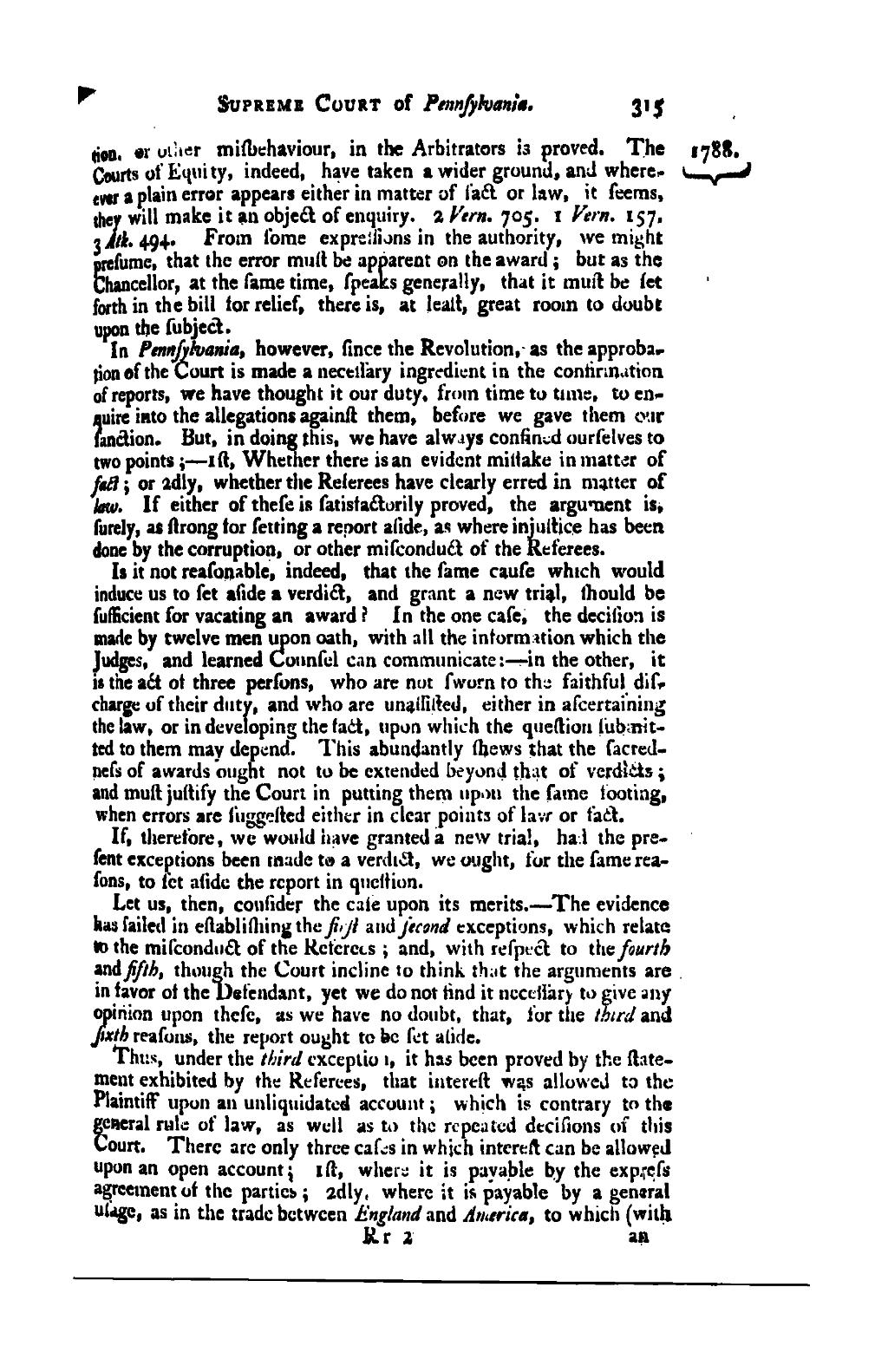1788.![]()
tion, or other mifbehaviour, in the Arbitrators is proved. The Courts of Equity, indeed, have taken a wider ground, and whereever a plain error appears either in matter of fact or law, it feems, they will make it an object of enquiry. 2 Vern. 705. 1 Vern. 157. 3 Atk.494. From fome expreffions in the authority, we might prefume, that the error muft be apparent on the award ; but as the Chancellor, at the fame time, fpeaks generally, that it muft be fet forth in the bill for relief, there is, at leaft, great room to doubt upon the fubject.
In Pennʃylvania, however, fince, the Revolution, as the approbation of the Court is made a neceffary ingredient in the confirmation of reports, we have thought it our duty, from time to time, to enquire into the allegations againft them, before we gave them our fanction. But, in doing this, we have always confined ourfelves to two points ; –1ft, Whether there is an evident miftake in matter of ƒact ; or 2dly, whether the Referees have clearly erred in matter of law. If either of thefe is fatisfactorily proved, the argument is, furely, as ftrong for fetting a report afide, as where injuftice has been done by the corruption, or other mifconduct of the Referees.
Is it not reafonable, indeed, that the fame caufe which would induce us to fet afide a verdict, and grant a new trial, fhould be fufficient for vacating on award? In the one cafe, the decifion is made by twelve men upon oath, with all the information which the Judges, and learned Counfel can communicate:–in the other, it is the act of three perfons, who are not fworn to the faithful difcharge of their duty, and who are unaffifted, either in afcertaining the law, or in developing the fact, upon which the queftion fubmitted to them may depend. This abundantly fhews that the facrednefs of awards ought not to be extended beyond the fame footing, when errors are fuggefted either in clear points of law or fact.
If, therefore, we would have granted a new trail, had the prefent exception been made to a verdict, we ought, for the fame reafons, to fet afide the report in queftion.
Let us, then, confider the cafe upon its merits.–The evidence has failed in eftablifhing the firƒt and ʃecond exceptions, which relate to the mifconduct of the Referres ; and, with refpect to the ƒourth and ƒiƒth, though the Court incline to think that the arguments are in favor of the Defendant, yet we do not find it neceffary to give any opinion upon thefe, as we have not doubt, that, for the third and ʃixth reafons, the report ought to be fet afide.
Thus, under the third exception, it has been proved by the ftatement exhibited by the Referees, that intereft was allowed to the Plaintiff upon an unliquidated account ; which is contrary to the general rule of law, as well as to the repeated decifions of this Court. There are only three cafes in which intereft can be allowed upon an open account ; 1ft, where it is payable by the exprefs agreement of the parties ; 2dly, where is is payable by a general ufage, as in the trade between England and America, to which (with
